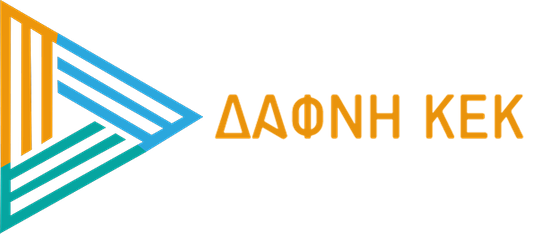Project Description and Rationale
Community centres reflect the challenges of a continuously changing rural landscape and are essential cornerstones of rural communities. They play a key role in maintaining a stimulating learning environment in the rural area, as in many regions they are one of the few facilities and meeting points. These venues have different names: village halls, kulturhus, etc. Besides a broad range of other activities, these centres offer or facilitate non-formal and formal education: basic skills, entrepeneurship, courses for elderly people, training for local organisations and volunteers, etc. In Learning Heart partners will focus on the educational role of community centres in order to build up or strengthen this role for the whole community, especially responding to the needs of the low-skilled population, volunteers and groups that find traditional education venues a barrier to learning. Partners will arrange study visits, exchange good practices and do practical research on several topics: conditions for optimizing education in rural areas, new educational concepts, quality assurance, rural networks for education and participation. In each country learners will be involved in the discussions. Every partner will involve a second circle of organisations around this project. The aim is to strengthen the educational role of the community centres.
Partners
Foundation for Folkhighschoolwork in The Netherlands
The Foundation of Folkhighschoolwork is a national organisation for the promotion of lifelong learning, specially for the promotion of non formal education and learning in relation to formal learning. The organisation, with historical roots in rural development work, has a special focus on local and regional educational platforms, adult learners’ week, and rural development and education. Important activities are gathering and dissemination of good practices in these areas, and policy influencing. The foundation supports small educational and multicultural projects directed to marginalized groups in society, social cohesion and inclusion. Further expertise: the organisation is experienced in linking relevant networks active in the LLL- area. Members are active in the Leader+ Programme for rural development. The organisation has experience in project management and in several Grundtvig Learning Parterships, which makes it possible to take the role of the coordinator. The first idea of Learning Heart is was born in the former learning partnerschip LILLA. Further development took place during the dissemination activities of this project.
Hungarian Folk High School Society
The Hungarian Folk High School Society is a national level NGO organisation specialising in non-formal adult education, with more than one hundred member organisations within Hungary. The general objectives of the HFHSS are The realisation of learner-centeredness, to Increase individual and minor community autonomy and action-capability, Taking up of local and national traditional values and increasing European and international openness, the recognition and support of all forms of learning, increasing participation in learning, and the recognition of the role of learning in individual and family life, social role taking, employment and career planning. Specific experience and competences in relation to this project can be found in all of the Hungarian Folk high School Society’s activities. The HFHSS completed a number of non-formal training courses that in a NUTS IV small region that in total, catered for more than 500 participants. The HFHSS has a learning centre in western Hungary, which is also working as the community house and folk high school of Balatonszepezd village. This local folk high school and community centre is a partner in the local LEADER group. HFHSS realized a program in 2004-2006, in a national framework (HEFOP), which focused on the capacity building of community houses to increase them to act as local adult learning centres. In Hungary we are still in the phase, where local cultural and community houses have to be forced to be open to the different non-formal educational challenges. As a continuation of our project finished in 2006, now HFHSS is building up a new partnership with 20 villages from western Hungary. In this possible new project (possibly TAMOP framework) we will help to a couple of local cultural houses to transform to learning centres. The project contains the following practical elements: creating new learning environment, offering training to the employees working in local cultural centres, coordinating their accreditation process and helping them to create curriculum focusing on local needs and key competencies.
Dafni Kentro Epaggelmatikis Katartisis KEK DAFNI
DAFNI KEK, is an independent, non profit training organisation that primarily targets certified and/or subsidised vocational training in the framework of its management agreement with the Greek government but also other organisations that apply non formal (continuing) vocational training in combating social exclusion and unemployment in a social cohesion and active participation approach.
The DAFNI KEK realises its key tasks – social and labour market integration by means of activities like guidance, tailor made training, promoting expertise and implementation of quality care, research and development, data collection, representation, international cooperation, information and promotion.The DAFNI KEK wants to carry out these key tasks in a professional way and in cooperation and continuous consultation with adult education and continuing training initiatives and adult educators and facilitators. Member of EAEA and NILE –NETWORK ON INTERCULTURAL LEARNING IN EUROPE. Expertise in fields as Greek Language for migrant Women, Home Care and PHTLS (Pre Hospital treatment), First Aid to Rescue Group of Patras. European projects implementation as coordinator and partner (Socrates- Grundtvig, Leonardo da Vinci),Interreg –Medocc, etc. DAFNI KEK is activated in cooperation with the rural, semi urban municipalities of Achaia Prefecture in order to enhance their developmental aims by offering information, training possibilities for their low skill habitants, etc,.
Foundation Doarpswurk
Doarpswurk is a support service in the province of Fryslân and works toward the preservation of and stimulation of social cohesion and the quality of life in the Frisian countryside. The voluntary administrations of community centres and villages are our primary target groups. Doarpswurk offers, e.g., information and training for administering community centres concerning the many relevant legal requirements, or a course in how to establish a village archive. The newsletter keeps members apprised of Doarpswurk’s wide range of courses. Doarpswurk offers support and guidance. In the case of community centres, this will involve, amongst other things related to run a non profit company, renovation and new-housing projects, questions regarding maintenance, quality control and drafting business plans. In that of village associations it will concern the conceiving and drawing up of detailed visions for village development creating contact between the municipality, the housing cooperative and the villages, as well as the creation of federative unions.
Doarpswurk provides advice regarding the development of policy and the implementation of the resulting organisational changes, both concerning administering village associations and community centres as well as for their partners, e.g., municipal and other governments, social services and companies. The last decades many structural changes took place in rural areas such as abandoned regions and a decrease of facilities. Nowadays important issues are the inhabitants decrease and the aging . Solutions are bringing all kind if services to the villages and find the most multifunctional use of community centres. The staff of Doarpswurk: 11 persons, including 5, regional orientated, consultants.
Danske Forsamlingshuse
Danish Assembly Houses is a nationwide association of assembly houses. We have 800 member organizations and represent approx. 8000 people. We are a support service for members and work towards preserving and promoting social cohesion and quality of life in villages. The voluntary administration of local centers and villages are our primary audiences. Danish Assembly Houses offers, information and training to manage the community centers on many important legal requirements, or a course in how to create a village archive. We publish four annual buttock to members, with relevant articles. We offer support and guidance for, among other things related to running a non-profit associations, renovation and new projects, issues concerning maintenance, quality control and develop business plans. Danish Assembly Houses provide advice on the development of policy and implementation of the resulting organizational change, both concerning the administration of organizations and community centers and their partners, for example, municipal and others. In recent years many structural changes took place in rural areas under municipal amalgamation in Denmark. These changes have had major impact on rural areas and their decay. We inspire new solutions and help them.
Norfolk Rural Community Council
Norfolk Rural Community Council is a leading generalist infrastructure charity within the county of Norfolk. Our role can be divided into three strands:
To help communities all the way from identifying needs to delivering solutions with friendly support and genuine expertise.
To provide a voice to rural communities to ensure that decisions on services, policies and strategies do not discriminate against them and adequately serve and reflect their needs.
To research, consult and develop initiatives to solve the problems faced by our communities.
Two core areas of work within this broad remit are:
– The support of approximately 450 community buildings across Norfolk with specialist technical advice and general development support – Support for access to key services, including education, for isolated and socially excluded individuals across a range of accessibility barriers.
Aberystwyth University
The Centre for Widening Participation and Social Inclusion of the University of Aberystwyth is concerned with tackling social exclusion by promoting informal and formal learning. It works with marginalised groups, such as those in drug and alcohol rehabilitation centres, those with low levels of skills, and people of all ages who lack formal qualifications. It has a particular interest and expertise in developing learning projects in rural areas. We have some specialist projects such as those working with women, with Welsh-speakers and with young and older people who are unlikely to progress their education without direct intervention. Most of our activities involve training ‘Leaders’ from among the undergraduate population to support the beneficiaries. Impartial guidance and support is integral to our projects. Some projects are delivered through face-to-face contact and others through electronic communications.
Objectives
Exchange of experiences about the different functions and roles of community centres, specially concerning social vulnerable groups and low-skilled people.
Strengthen the educational role of the community centres involved, including the development of innovative educational concepts.
Getting insight in the learners’ position, wishes and needs.
Getting insight in the desirable educational network in every specific region.
Getting insight in quality assurance and conditions for community centres.
Getting insight in the surplus value of community centres and the cooperation between the different functions/users.
Getting insight in the role of supporting organisations on regional and national level concerning the strengthening of quality.
SUBJECTS TO ADDRESS
The urgency to increase the liveability of the rural area.
The necessity of a positive educational impulse in deserted rural areas where facilities are decreasing. This affects all inhabitants, but specially social vulnerable groups and people with low education.
The need of a coherent offer of non formal and formal education near home which can be promoted by a regional network.
The importance to learn from good practices of community centres-and-education: a client centred approach, quality plans and quality measuring,
The training of volunteers and other persons active in rural development: basic skills, social skills, management skills, etc.
The government policy on education and community centres.
Equal participation and active engagement of learners and volunteers in the learning agenda.
Impact on participating organisations
The experiences obtained through this European partnership will lead to deeper knowledge and understanding of rural communities and the challenges they face. Innovative educational practices from partner countries can be adopted with some necessary adjustments. This learning partnership will stimulate community centres to be innovative. It will strengthen their position within the community. The project will form a basis of partnership and cooperation that will extend beyond the lifetime of the project
Reports
Report Patras
Report Hungary
Report Aberystwyth
Report Norfolk
Report Harlingen
Report Sk-rum Mill



